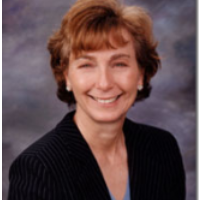Obama Nominating California Political Watchdog to Federal Election Commission
 Ann Ravel
Ann Ravel
President Barack Obama is nominating California’s chief political watchdog, Ann Ravel, to the dysfunctional Federal Election Commission (FEC), which doesn’t have a single member whose term has not officially expired.
The administration announced on Friday that Ravel, who has been chairwoman of the California Fair Political Practices Commission (FPPC) the past two years, would be nominated along with Lee E. Goodman. He is a veteran Washington election law attorney who has represented corporations, trade groups and political campaigns for the past two decades. Goodman is a Republican and Ravel is a Democrat.
Ravel has received mixed reviews as FPPC chair, lauded for leading the crackdown on secret money in last year’s election but criticized by some for siding with lobbyists and politicians to weaken the oversight system.
She received national attention for trying to find the source of $11 million that was belatedly dumped into California campaigns last year by a shadowy Arizona-based non-profit organization. The FPPC traced the so-called dark money, which was directed to groups campaigning against Governor Brown’s November tax initiative and an anti-union ballot item, back through an intermediary to a conservative Virginia-based outfit call Americans for Job Security.
The intermediary, the Center to Protect Patient Rights, has links to the ultra-conservative billionaire Koch brothers, who are rumored to be close to purchasing the Los Angeles Times and other newspapers from Tribune Corporation.
Ravel served in the Santa Clara County Counsel’s office from 1976-2009, spending the last decade in charge of it. She left to join the U.S. Department of Justice as deputy assistant attorney general for Torts and Consumer Litigation in the Civil Division.
The six-member FEC—which monitors campaign finance contributions, enforces regulations on spending and campaign funding and distributes public funds for presidential elections—was designed with non-partisanship in mind. Positions are divided equally between Republicans and Democrats and four votes are needed to approve any decisions. The seats are staggered so that two members are appointed every two years.
The commission has come under scrutiny and criticism in the wake of the U.S. Supreme Court’s Citizen’s United decision in 2010, which allowed corporations and unions to spend unlimited amounts of money advocating for and against candidates. The court made it clear that the commission could require disclosure of contributors to nonprofit organizations with political connections, but it has been deadlocked over the issue for years.
President Obama has nominated just one person to the commission since he took office five years ago and that person didn’t make it through the process. The commission has one vacancy and five current members are still serving, although their terms have officially expired.
Obama’s other commission nominee, Goodman, is an attorney with LeClairRyan and has a record of opposing certain campaign finance reforms. He was a self-described “early member” of the Bush-Cheney Recount Team in 2000, which is often credited with swinging the presidential election to the GOP by spearheading efforts to stop the vote-counting before it was complete.
The nominees will have to be confirmed by the Senate.
–Ken Broder
To Learn More:
State Political Watchdog Ann Ravel Named to Federal Election Commission (by Josh Richman, San Jose Mercury News)
Obama Taps Ann Ravel for Federal Election Commission Post (by David Siders, Sacramento Bee)
Obama Nominates 2 to FEC (by Byron Tau and Tarini Parti, Politico)
President to Nominate Critic of “Dark Money” to Campaign Agency (by Kevin Bogardus, The Hill)
Will the Federal Election Commission Ever Work Again? (by Jonathan D. Salant, BloombergBusinessweek)
White House Nominates New FEC Commissioners (by Dave Levinthal, The Center for Public Integrity)
Terms for All Members of Federal Election Commission Have Expired (by Noel Brinkerhoff, AllGov)
- Top Stories
- Controversies
- Where is the Money Going?
- California and the Nation
- Appointments and Resignations
- Unusual News
- Latest News
- California Forbids U.S. Immigration Agents from Pretending to be Police
- California Lawmakers Urged to Strip “Self-Dealing” Tax Board of Its Duties
- Big Oil’s Grip on California
- Santa Cruz Police See Homeland Security Betrayal in Use of Gang Roundup as Cover for Immigration Raid
- Oil Companies Face Deadline to Stop Polluting California Groundwater





